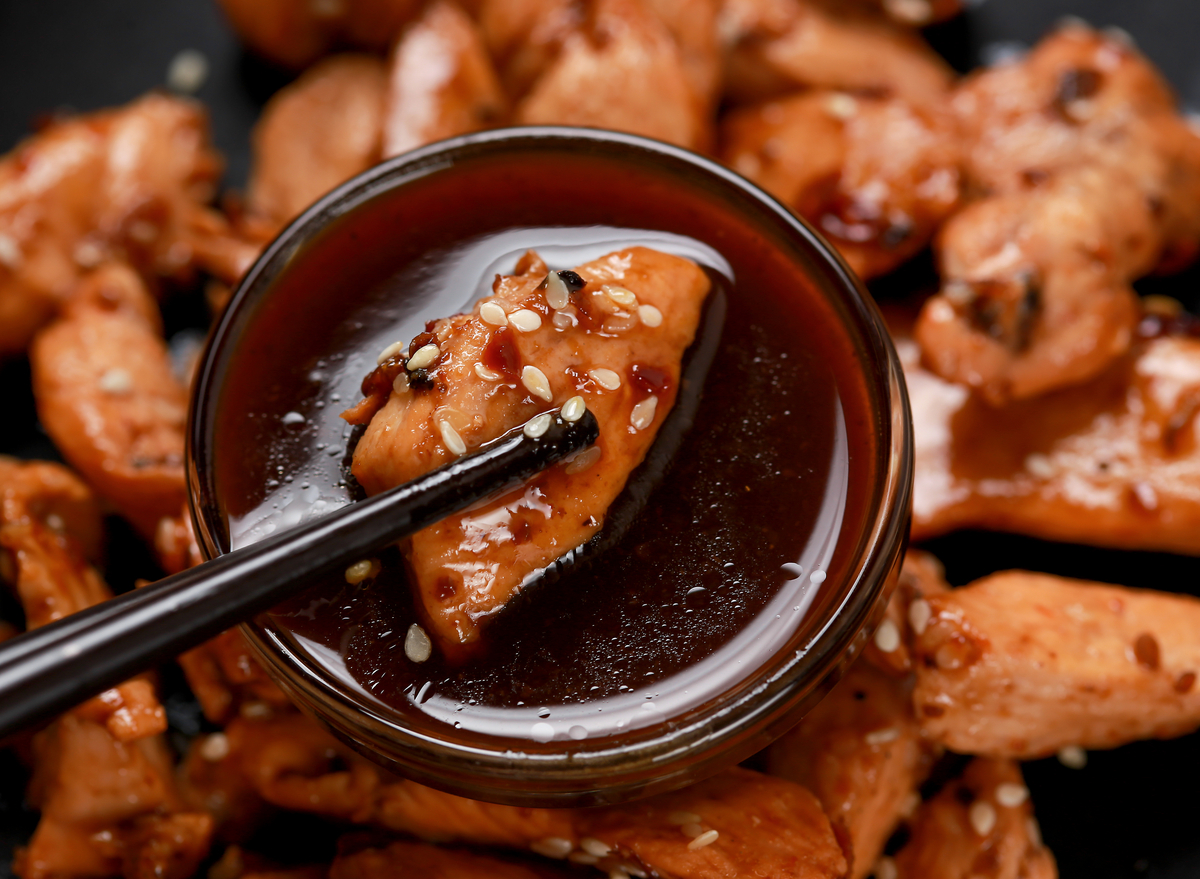Let’s know the ‘Effects Of Consuming Japanese Teriyaki Sauce’ Everyone enjoys delicious cuisine. To do this, we must occasionally flavor our food with sauces, marinades, dressings, vinegars, juices, and other ingredients.
Teriyaki sauce is a popular sauce from Japanese-inspired cuisine that is used in many different meals. This savory, sweet, and tangy sauce is frequently applied as a glaze over meat, fish, tofu, and vegetables.
The final determinant of our diets is not just one food item we occasionally enjoy to season a wonderful dinner, but rather the consistent dietary decisions we make over time. But are there any intriguing “side effects” to teriyaki sauce that we should be aware of before adding it to our regular grocery list?
Here We Look At The Side Effects Of Consuming Japanese Teriyaki Sauce
You May Ingest Too Much Sodium
These products’ flavor, like that of many other sauces on the market, may be only the result of a heavy salting. Soy sauce, a well-known source of high sodium, is a key ingredient in teriyaki sauce, along with additional salt.
Adults should take no more sodium than 2,300 milligrams (mg) per day, or one teaspoon of salt, according to the established daily reference value (DRV). Approximately 689 mg of sodium are present in one tablespoon of teriyaki sauce, but you’re not going to stop there while you’re eating a meal. Consuming too much sodium raises blood pressure, increases the risk of heart disease, and increases the chance of stroke.
You Might Aggravate Irritable Bowel Syndrome (IBS)
Teriyaki sauce may exacerbate symptoms if you have irritable bowel syndrome (IBS), which affects 15% of people globally. Consumption of FODMAPs (fermentable oligosaccharides, disaccharides, monosaccharides, and polyols) in the diet has the potential to cause this digestive disorder.
Garlic and onions are well-known fermentable carbohydrates that can trigger flare-ups including bloating, gas, and stomach pain. They can also cause diarrhea or constipation.
Your Added Sugar Targets Might Be Exceeded
When consumed in excess, sugar from foods like honey, molasses, syrups, nectars, beet sugar, cane sugar, and beet sugar can easily push out other nutritious foods on our plates.
Check the labels of your favorite breakfast bars, cereal, favorite juices, favored condiments, and yes, even sauces to see whether they include sugar. Sugar isn’t just in sweets, sodas, and candies.
Three to eight grams of added sugar are included in teriyaki sauce per tablespoon, which might mount up if we don’t pay attention to how much we use and eat it regularly. Most adults should try to limit their daily intake of added sugar to less than 50 grams.
You Could Calm Temporary Indigestion

On the other hand, ginger is a prominent ingredient in teriyaki sauce, and this root could reduce abdominal discomfort linked with short-lived indigestion.
This is an interesting difference if you are merely suffering an upset stomach out of the blue. The majority of teriyaki sauces contain ginger, which can relieve stomach aches, nausea, and heartburn.
Be aware of where ginger appears on the ingredient list. The ingredients that are most important are listed first, and the ingredients that are least important are included last. A ginger-infused teriyaki sauce should be found near the top of the list.
Don’t consistently turn to teriyaki sauce for relief from nausea or indigestion; instead, deal with any underlying problems. If you have any digestive issues, talk to your doctor.
You Might Gain Weight Gradually
According to a 2019 study published in Cell Metabolism, teriyaki sauce is regarded as an ultra-processed food that includes little to no whole foods and is linked to weight gain. Furthermore, any extra calories from our diet beyond what we burn off might result in a calorie surplus, which can act as a trigger for weight gain.
Depending on the brand, teriyaki sauce has 15–45 calories per tablespoon. The majority of weight growth happens gradually over months and years, not just a few days or weeks. Small culinary decisions we make over time, such as putting too much sauce on our dish, can predict the chance of weight gain in the future.
Teriyaki sauce, for example, can taste our meals incredibly well, but it also has some unusual negative effects. Consider the nutritional content of each bottle you consume and balance the consumption of this product with other foods and beverages.





